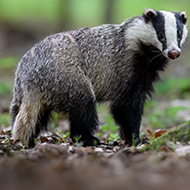
Pressure mounts on UK government to ‘Make Wildlife Count’.
An animal welfare charity is calling for urgent legislative reform to ensure key wildlife crime is properly investigated and recorded.
The call from the Naturewatch Foundation comes in response to increasing concern about illegal activities, such as badger baiting, poaching and the destruction of habitats.
Wildlife crimes are currently often classified as summary offences, meaning they are typically handled by magistrates’ courts and carry minimal penalties. It is not mandatory to report these offences to the Home Office, so the scale of the problem cannot be measured, nor can resources be allocated effectively.
Under their Make Wildlife Count campaign, Naturewatch is calling for key wildlife crimes to be given notifiable status, meaning police forces would be required to report the offences to the Home Office.
The animal welfare charity believes this would enable greater monitoring of wildlife crime, enhance transparency and accountability, and allow for the better allocation of wildlife protection measures.
Jim Clark, Naturewatch Foundation wildlife crime campaign manager, explains: “The current legal framework fails to reflect the severity of wildlife crimes and the long-term damage they cause to natural habitats and our communities.
"By making these crimes notifiable, we can ensure they are taken seriously and that offenders face appropriate consequences. It’s time to make wildlife count."
Naturewatch is encouraging policymakers, law enforcement agencies and the public to support the campaign by writing to their local MP and signing the petition. Learn more at naturewatch.org



 The Veterinary Medicines Directorate (VMD) is inviting applications from veterinary students to attend a one-week extramural studies (EMS) placement in July 2026.
The Veterinary Medicines Directorate (VMD) is inviting applications from veterinary students to attend a one-week extramural studies (EMS) placement in July 2026.